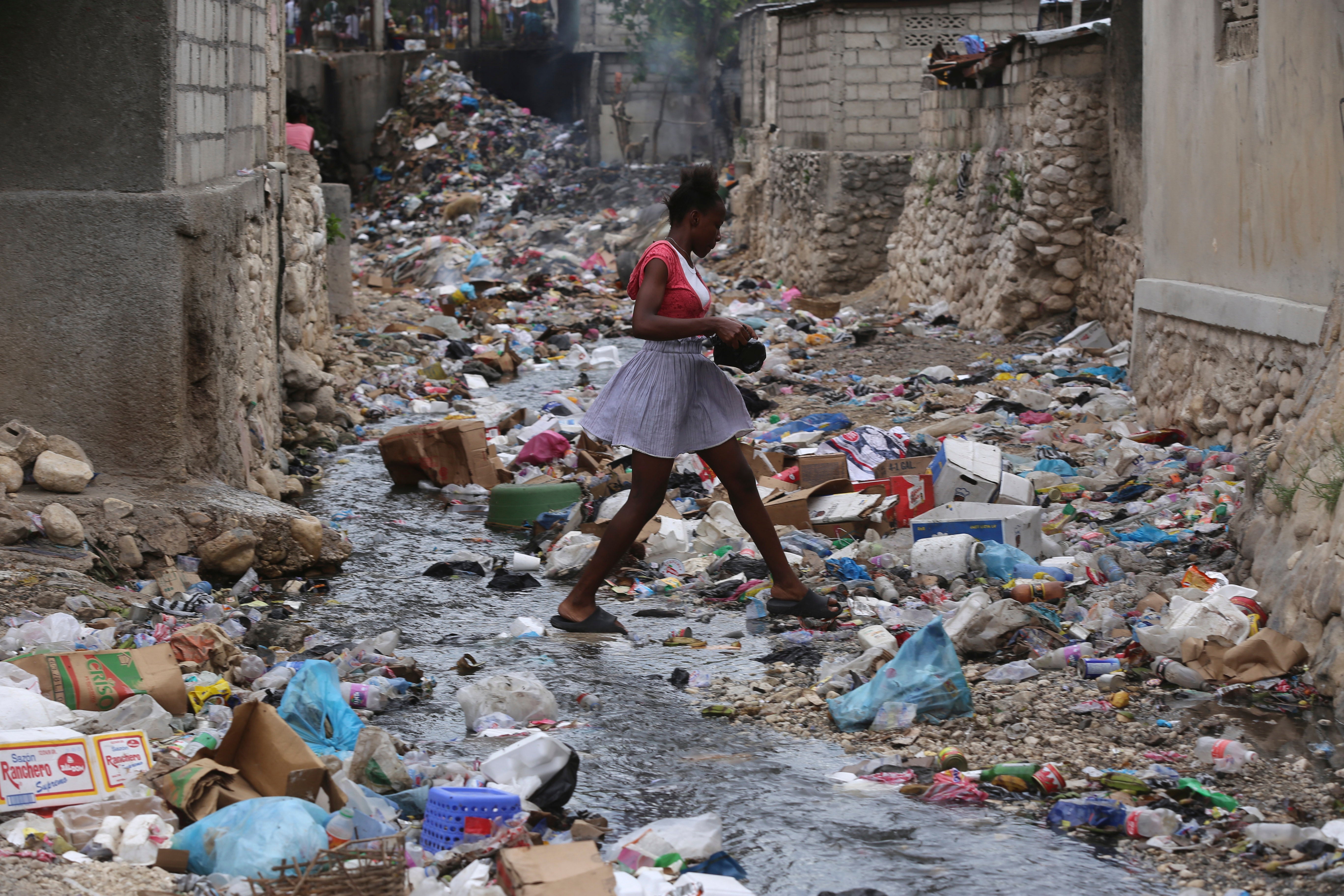Security Council gives UN chief 30 days to come up with options on how to fight Haiti's armed gangs
The U.N. Security Council has asked the secretary-general to come up within 30 days with options to help combat Haiti’s armed gangs and restore security in the conflict-torn nation

The U.N. Security Council asked the secretary-general on Friday to come up with options to help combat Haiti’s armed gangs, including a possible U.N. peacekeeping force and a non-U.N. multinational force.
A resolution adopted unanimously by the council asks U.N. Secretary-General Antonio Guterres to report back on “a full range” of options within 30 days to improve the security situation, including additional training for the Haitian National Police and providing support to combat illegal arms trafficking to the impoverished Caribbean nation.
It also authorizes up to 70 U.N. police and corrections advisers to scale up support and training for Haiti’s understaffed and underfunded national police force. And it “encourages” countries, especially in the Caribbean region, to respond to appeals from Haiti’s prime minister and from Guterres for the deployment of an international specialized force.
Haiti’s Prime Minister Ariel Henry sent an urgent appeal last October for “the immediate deployment of a specialized armed force, in sufficient quantity” to stop the gangs. However, more than eight months later no country has stepped up to lead such a force.
Guterres, who visited Haiti earlier this month, called last week for a robust international force to help the Haitian National Police “defeat and dismantle the gangs.”
He said the estimate by the U.N. independent expert for Haiti, William O’Neill, that up to 2,000 additional anti-gang police officers are needed is no exaggeration. O’Neill, who concluded a 10-day trip to Haiti this month, is an American lawyer who has been working on Haiti for over 30 years and helped establish the Haitian National Police in 1995.
The gangs have grown in power since the July 7, 2021 assassination of President Jovenel Moïse and are now estimated to control up to 80% of the capital. The surge in killings, rapes and kidnappings has led to a violent uprising by civilian vigilante groups.
Compounding the gang warfare is the country’s political crisis: Haiti was stripped of all democratically elected institutions when the terms of the country’s remaining 10 senators expired in early January.
The resolution, co-sponsored by the United States and Ecuador, “strongly urges” all countries to prohibit the supply, sale or transfer of weapons to anyone supporting gang violence and criminal activities.
It reiterates the need for all Haitians, with support from the U.N. political mission known as BIHUH, to establish “a Haitian-led, Haitian-owned political process to permit the organization of free, fair and credible legislative and presidential elections.” And it calls on the Haitians “to urgently reach an agreement on a sustainable, time-bound and commonly accepted roadmap for elections.”
The resolution extends BINUH’s mandate until July 15, 2024, and also encourages the mission “to explore options to enhance the Haitian criminal justice sector in order to fight impunity.”
U.S. Ambassador Linda Thomas-Greenfield called the resolution an important step to help the Haitian people shape their future and restore democratic order.
But she said, “we must do more,” and urged all 15 council members to join the U.S. in working with BINUH, the Haitian government and the international community to “help the Haitian people secure a more just and peaceful future.”
China’s deputy U.N. ambassador Geng Shuang reiterated Beijing’s position that the most urgent task is to stabilize the security situation and stop the flow of arms, otherwise “no amount of support for the Haitian National Police will make any difference.”
He stressed that the U.N.’s actions in Haiti over some 30 years “have shown that quick fixes implemented from the outside often fail to deliver long-term results that will help Haiti truly emerge from the crisis.”
“The United Nations should fully learn from the past,” Geng said.
Bookmark popover
Removed from bookmarks